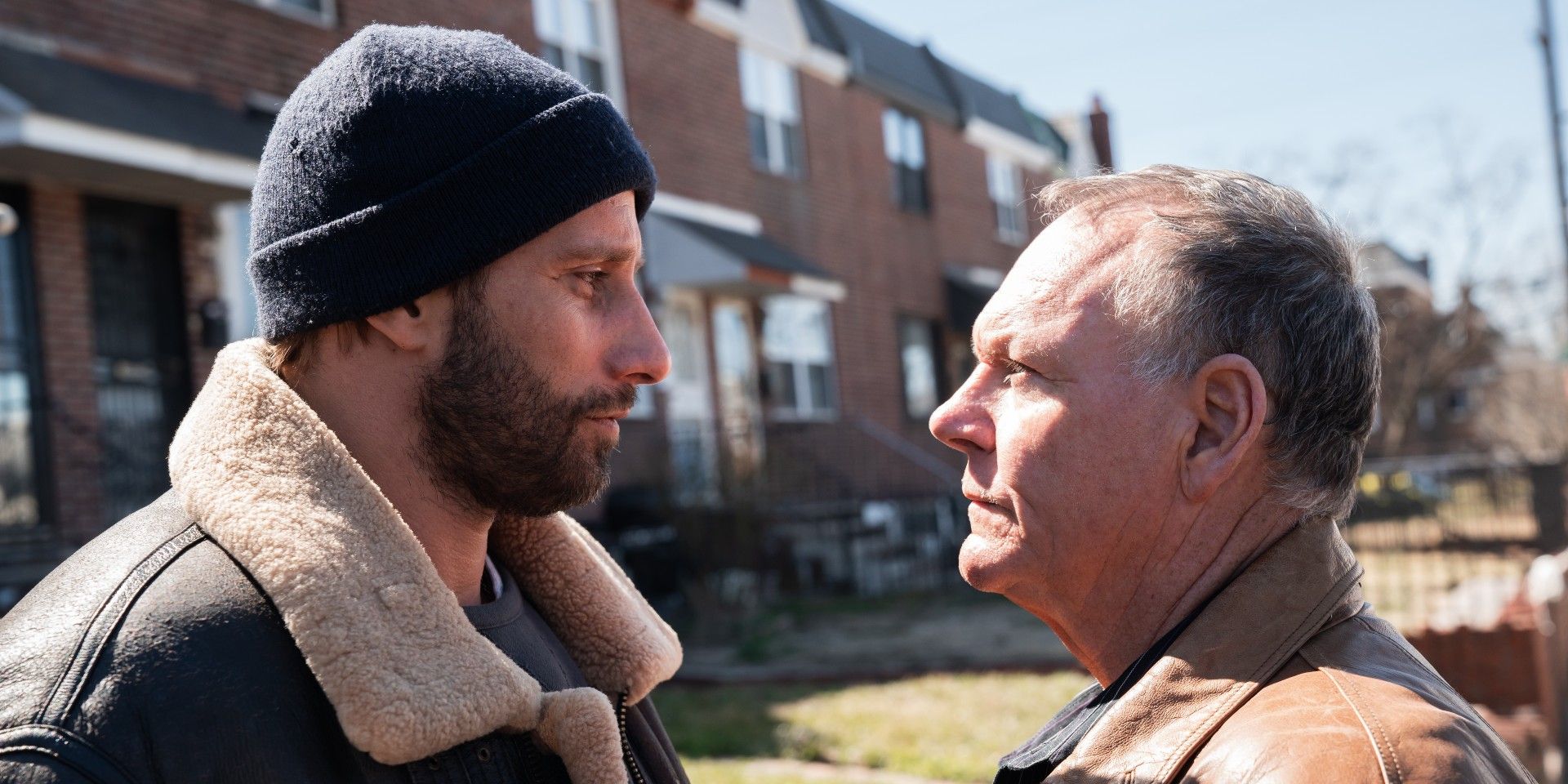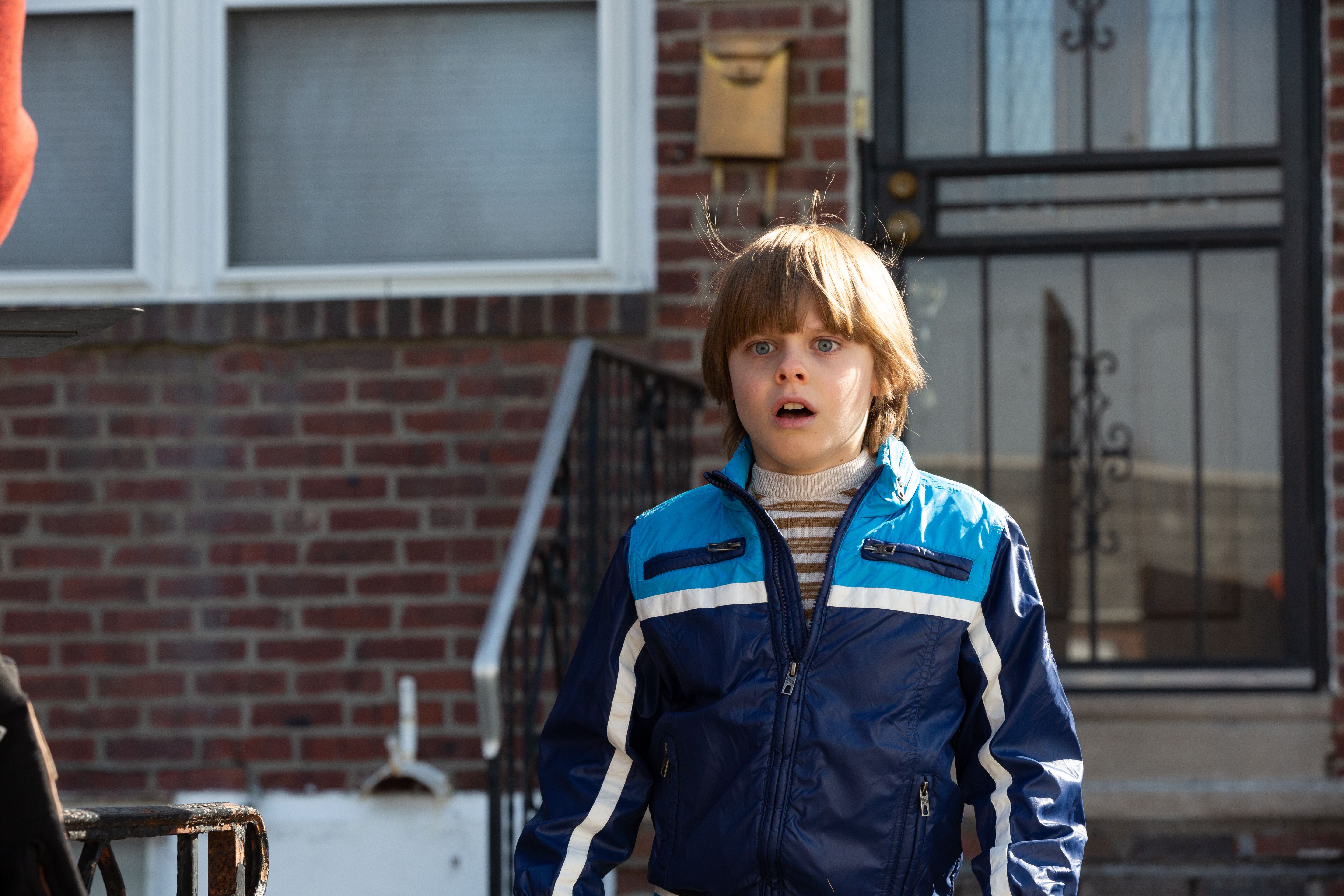
Adapted from Pete Dexter's family-crime novel Brotherly Love, Jérémie Guez's Brothers by Blood focuses on Peter Flood's (Matthias Schoenaerts) grief from losing his sister as a child and grappling with being raised in a crime family. As Peter seeks to distance himself from the family's criminal business and its painful history, his cousin Michael (Joel Kinnaman) -- who he was raised to see as a brother -- rises up the ranks in Philly's criminal underworld.
Director and writer Jérémie Guez discussed with CBR how he views his film as one that honestly looks at the generational pain and trauma of criminal families.
CBR: You’ve done so much in this genre. You're a crime novelist as well as a screenwriter and director. What inspires you to continue creating in this genre?
Jérémie Guez: I think that's what I like as a reader or when I was watching movies younger. I think the characters seem more realistic to me. I could relate to them growing up to people in my environment. It was not something about a world I didn't know where stakes were artificially high. I could relate to these characters, the anti-heroes. Yeah, people that were underdogs. People struggling with that, I've always felt more empathy towards because, I mean, you just looked around yourself and these are people you'll find in real life.
Brothers by Blood is very much a family crime story. What did you want to do differently with your approach to this kind of story?
Guez: For me, it was more like a family drama than a regular mob film. I'm not really interested in that. I mean, great mob films have been done. It's kind of done in the genre. Everything is so common that it became cliche, and I thought it was just cool to show what could be the life of the grandsons of these characters from these flashy characters from the '70s. So you're gonna see that. Like, what that's gonna make them into? What's gonna make a family explode? It's not like greed or power struggles. It's a car accident that took place 20 years ago. I thought that was a good start because it's not like a gang war that's gonna divide the family. It's the weight of the past.
The difference for me was that you just see these guys and they're like lowlife gangsters because their parents and grandparents were doing that. It's the first time it was treated as a day job. That's a pain in the ass and nothing too spectacular.

Yeah, I definitely felt the frustration of Peter approaching his crime life similar to a really sucky day-job where he's like, "This is what we do. This is the life I'm in." The story revolves so much about him being trapped in that life and in his guilt and grief. So without spoiling too much, do you think Peter finds what he needs in the end from that struggle?
Guez: Ah, I don't know. I think we're a generation where now we know that people with money, people who were famous, or people with social status... Most of them were assholes. Now we have the knowledge and we have access to information where we know who did this and that. And that guy was a huge star or he was someone before and we realize he's just an asshole. But does that make us feel better? Is it better to have like heroes and believe in a childish way that some human beings are superior to others? Or is it better to have like, a no-bullshit civilization?
It's tough to learn that everything in your family is false and that everything is bad. The only thing you thought was deserved, like your family's honor, was sacrificed. And you discover that's bullshit too. So I don't know he goes away or if he takes over his cousin's empire and be like, "Fuck it. Now I'll just do it. I know the Italians like me. Why not?"
Yeah, so it's like breaking the cycle, but he just repeats what his uncle did to his father as well. So it's, yeah, it's kind of why the ending is ambiguous. I couldn't choose for him. I mean, it could be [seen] both ways.
What led you to set the film in Philly?
Guez: The book took place in Philly and to be honest, I had the feeling that Philly was really important... I wanted to know if there was anything specific about the book where it had to take place there or could be in some other East Coast city. But, I just love Philly culture. The fact that they're, like, proud of who they are. They're like, you know, the underdogs. That blue-collar culture and street culture. It reminded me of Paris in the '90s when it was a little rougher maybe than what it is today? And yeah, I just loved it. It's a great city. It's the best city I've been to in America, probably.

What are some classic -- or not -- French-noir films that continue to inspire you? Ones that you see in this work influenced by? Or ones you want more American audiences to watch?
Guez: Like any of Jean-Pierre Melville's movies. Like The Red Circle. People are pretty familiar with The Samurai but like The Red Circle, definitely. Louis Malle, he directed Atlantic City starring Burt Lancaster. He's a great filmmaker. But, I'd say those two for sure, when I'm in the mindset [and] thinking about noir films.

I know there's a stereotype about French films, specifically noir and dramas, ending a bit more tragic. As a French director, do you think that stereotype is true? Or is it related to American audiences just not being comfortable with grief on screen? What are your thoughts on this idea?
Guez: Um, yeah, that's a big question, because, yeah, it's true that French and Italian movies have a problem with "happy endings."
But, at the same time, I remember the American movies I love don't have a happy ending. So, I don't know, I think it was more like U.S. movies were more radical until the '70s. And then it became softer. I don't have a theory about it. I just think that when people started thinking that movies are a product, they wanted to make sure that no one felt offended. And that everyone can like it. Which is very stupid, because it's the best way to do something that is not going to be special for anyone.
So, I guess that's more a commercial problem. And the way you think of the movie as a product, more than just the artistic feeling. The characters you build need to lead you somewhere. And you can choose the audience and give them a happy ending, just for the sake of it, but it's stupid. So I just think it has to do with the economy more than heart, or like American origins, because I think like recently, French movies have a happy ending as well. You refer to classic French movies, but, I mean, there are a lot of noir-American directors that have a very dark, dark ending like I could quote like 20 American geniuses that never did a happy ending in their entire career. So I guess it's more a matter of like currency and industry than cultural specificity.
Written and directed by Jérémie Guez, Brothers by Blood stars Matthias Schoenaerts, Joel Kinnaman, Maika Monroe, Paul Schneider, Nicholas Crovetti and Ryan Phillippe. The film is now playing in select theatres and available on VOD.
0 Comments